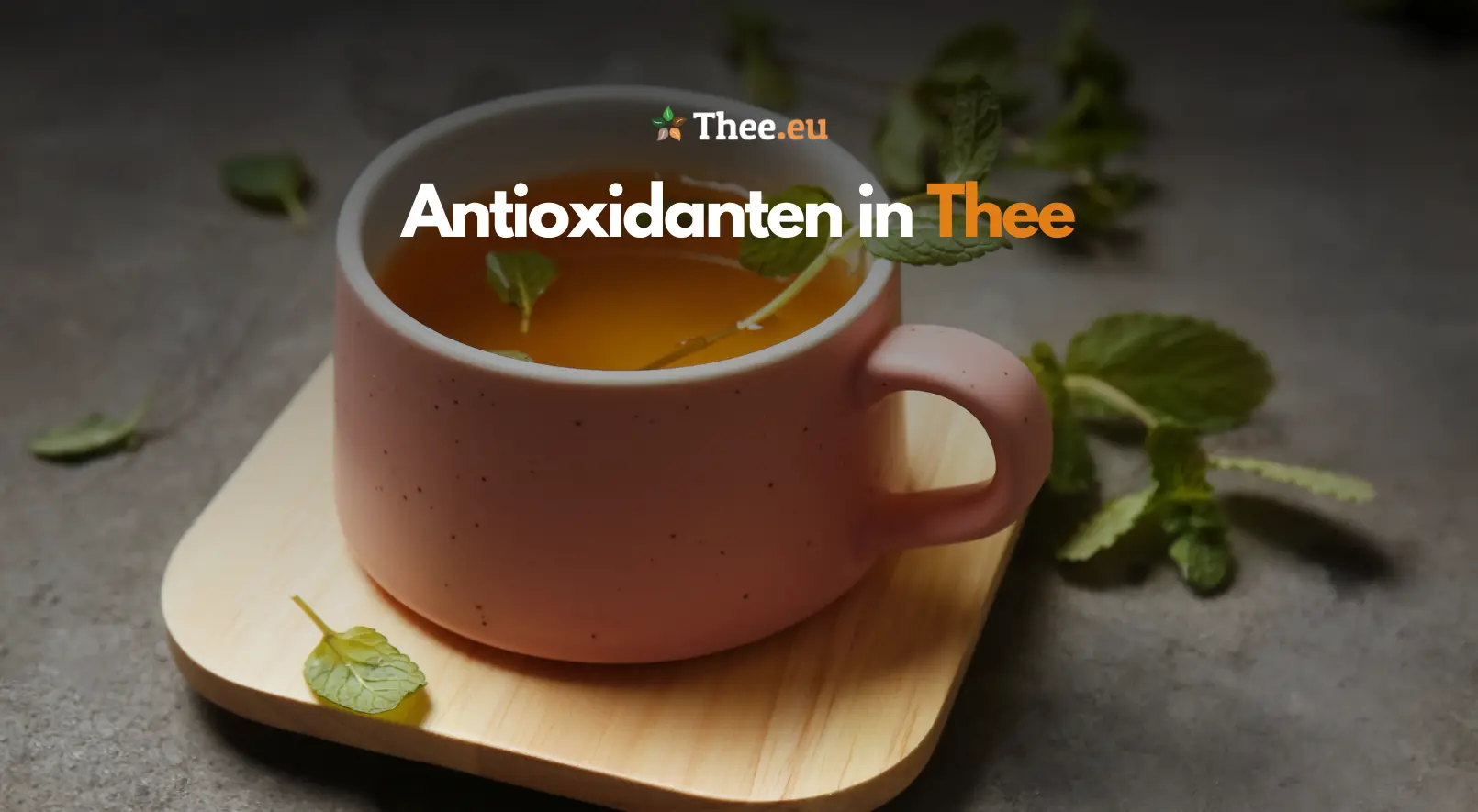
In the world of skin care, we are constantly on the lookout for the latest miracle cure. But what if the key to healthy, glowing skin has been in our kitchen cabinets for centuries? Tea, and especially high-quality loose tea, can be an unexpectedly powerful ally in your pursuit of perfect skin. At Thee.eu, we believe not only in the delicious taste of our teas, but also in their transformative power for your skin and overall well-being.
The scientific basis: why tea is good for your skin
Before we delve deeper into specific teas and their uses, it is crucial to understand why tea can be so effective for your skin:
- Antioxidants: Tea is rich in polyphenols, particularly catechins and flavonoids. These powerful antioxidants neutralize free radicals, molecules responsible for skin aging and damage.
- Anti-inflammatory properties: Many teas contain substances that can reduce inflammation in the body. This is particularly beneficial for skin conditions such as acne, rosacea and eczema.
- Hydration: Regular tea consumption contributes to your daily fluid intake. Well-hydrated skin is more elastic, less prone to wrinkles and has a healthier appearance.
- Minerals and vitamins: Tea contains essential micronutrients such as vitamins C, E and zinc, all of which play a role in skin health and repair.
- UV protection: Some studies suggest that certain compounds in tea, especially green tea, may help protect the skin from harmful UV rays.
Which Tea is Good for Your Skin? An in-depth analysis
1. Green Tea: The Champion of Skincare
Green tea is undisputedly at the top of the list when it comes to skin care. The question "which tea is good for your skin" is often answered with green tea, and for good reason:
- Epigallocatechin gallate (EGCG): This is the most studied and potent catechin in green tea. EGCG is known for its ability to:
- Stimulate cell renewal
- Promote collagen production
- Reduce DNA damage caused by UV radiation
- Inhibit inflammation
- L-theanine: An amino acid that reduces stress, which indirectly contributes to healthier skin by lowering cortisol levels.
- Caffeine: Unlike coffee, green tea contains caffeine combined with L-theanine, which provides a milder, long-lasting energy boost without stressing the skin.
Thee.eu's Green Glow: Our organic Sencha green tea is carefully selected for its high concentration of catechins. Perfect for daily use, both for drinking and external uses.
2. White Tea: The Subtle Powerhouse
White tea is the least processed of all teas, so it retains the highest concentration of antioxidants:
- High concentration of polyphenols: White tea contains even more antioxidants than green tea, resulting in:
- Superior protection against free radicals
- Delayed breakdown of collagen and elastin
- Improved skin elasticity
- Antibacterial properties: Effective in fighting acne-causing bacteria.
- Mild taste: Ideal for those who find the taste of green tea too strong.
Thee.eu's White Wonders: Our Pai Mu Tan white tea is a gentle yet powerful ally in your fight against skin aging.
3. Rooibos: The red lifesaver
Rooibos, from South Africa, is a caffeine-free alternative with impressive skin benefits:
- Unique antioxidants: Contains aspalathin and nothofagin, rare antioxidants rarely found in other foods.
- Zinc and alpha hydroxy acids: This combination is effective in:
- Reducing acne
- Promoting skin repair
- Improving skin texture
- Superoxide dismutase: An enzyme that protects the skin from oxidative stress and inflammation.
Thee.eu's Rooibos Remedy: Our pure rooibos tea is the perfect evening drink for skin repair, without worrying about caffeine.
Skin: The ultimate tea regime for radiant skin
Drinking tea daily can revolutionize your skincare routine. Here is an optimal regimen to get the most out of your tea:
- Morning (7-9 a.m.): Start your day with a cup of green tea. This boosts your metabolism, nourishes your skin with antioxidants and gives you a mild energy boost.
- Morning (10-12 a.m.): Alternate with white tea. The mild caffeine keeps you alert, while the high concentration of antioxidants protects your skin from environmental stress.
- Afternoon (2-4 p.m.): Another cup of green tea can help with the afternoon dip while continuing to nourish your skin.
- Evening (7 to 9 p.m.): End your day with a cup of rooibos. Caffeine-free and rich in minerals, it supports your skin's nighttime recovery process.
Pro-tip: Add a slice of lemon to your morning tea for an extra boost of vitamin C, which stimulates collagen production.
External uses: Tea as a luxury skin care product
Tea can also be applied directly to the skin for targeted benefits. Here are some DIY recipes you can easily make with our loose teas:
- Green Tea Anti-aging Face Mask:
- Ingredients:
- 1 tablespoon finely ground Thee.eu Sencha green tea
- 1 teaspoon raw honey
- 1 tablespoon of yogurt
- Preparation:
- Mix all ingredients into a smooth paste
- Apply to clean face
- Leave on for 15-20 minutes
- Rinse with lukewarm water
- Benefits: Reduces fine lines, soothes skin and gives a radiant complexion
- Ingredients:
- White Tea Firming Toner:
- Ingredients:
- 2 teaspoons Thee.eu Pai Mu Tan white tea
- 100 ml boiling water
- Optional: 2-3 drops of essential oil of your choice
- Preparation:
- Allow the tea to steep for 5-7 minutes in the hot water
- Strain and allow to cool completely
- Add essential oil if necessary
- Store in a dark glass bottle in the refrigerator
- Use: Apply morning and evening with a cotton swab
- Benefits: Firms skin, reduces pores and gives a fresh appearance
- Ingredients:
- Rooibos Soothing Eye Pads:
- Ingredients:
- 1 teaspoon Thee.eu Rooibos tea
- 100 ml boiling water
- Preparation:
- Allow the tea to steep for 5-7 minutes
- Strain and let cool in the refrigerator
- Dip cotton compresses into the cold tea
- Use: Place the compresses on your eyes for 10-15 minutes
- Benefits: Reduces puffiness and dark circles, soothes tired eyes
- Ingredients:
The importance of quality: Why choose loose-leaf tea from Thee.eu?
At Tea.eu we stand for unparalleled quality. But why is this so crucial when it comes to tea for skin care?
- Higher concentration of active ingredients: Our loose tea leaves retain more of their valuable contents because they are not finely ground or pressed into tea bags.
- Purer product: Less chance of additives or residues that can irritate your skin. Our teas are 100% pure and often certified organic.
- Fresher: Loose tea stays fresh longer, which means better preservation of antioxidants and other beneficial compounds. At Thee.eu, we guarantee optimum freshness through careful packaging and prompt delivery.
- Customizable: With loose tea, you can easily adjust the strength according to your preferences and needs, which is crucial when using it for skin care.
- More sustainable: Less packaging waste not only means a smaller carbon footprint, but also less chance of chemicals coming into contact with your tea.
Expert tips for making the most of Tea for your skin
- Choose organic tea: Avoid possible pesticides and other harmful substances that can irritate your skin.
- Vary your tea choices: Different teas offer different benefits. Alternate between green, white and rooibos teas for comprehensive skin care.
- Pay attention to the water temperature: Too hot water can break down some beneficial substances in tea. For green and white tea, use water of about 80°C. For rooibos, you can use boiling water.
- Timing is important: Drink antioxidant-rich teas such as green tea preferably in the morning for maximum protection against UV radiation and free radicals throughout the day.
- Combine with a healthy lifestyle: Tea works best when combined with adequate sleep, a balanced diet rich in fruits and vegetables, and regular exercise.
- Be patient: As with any natural treatment, it may take several weeks before you see visible results. Consistency is the key.
- Consult a professional: For severe skin problems, it is always wise to consult a dermatologist in addition to using tea for support.
Conclusion: tea as your natural beauty secret
In a world full of synthetic skin care products, tea offers a surprisingly effective and natural solution to a variety of skin problems. Whether you're looking for a powerful anti-aging strategy, help with acne, or just healthier, glowing skin, tea can be your natural ally.
At online tea store Thee.eu, we are passionate about providing the highest quality loose leaf teas to support you in your pursuit of healthier skin and improved well-being. From our antioxidant-rich green tea for "green skin" to our soothing rooibos for nighttime recovery, we have the perfect tea for every skin need.
Discover the transformative power of tea for your skin and experience the countless benefits for yourself. Start incorporating high-quality loose-leaf tea into your daily routine today and watch your skin glow with health week after week.
Visit our extensive tea collection and start your journey to healthier, radiant skin with the pure power of nature in every cup. At Thee.eu, we believe that true beauty comes from within, and our carefully selected teas are the perfect ally on your path to radiant, healthy skin.








